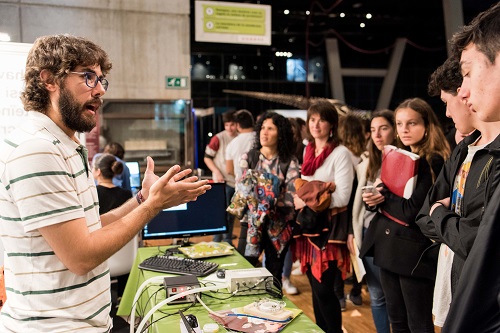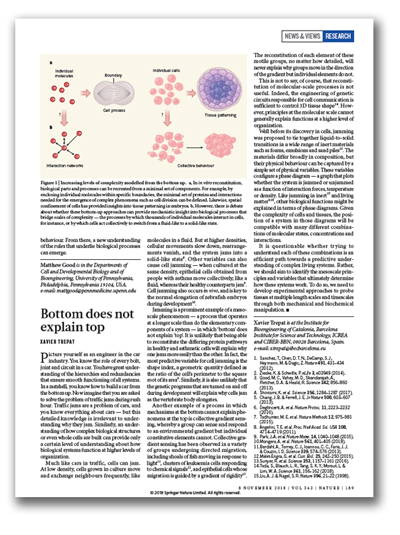PhD Thesis Defence: Gizem Altay
Towards the development of biomimetic in vitro models of intestinal epithelium derived from intestinal organoids
Towards the development of biomimetic in vitro models of intestinal epithelium derived from intestinal organoids
 Este año un proyecto de IBEC ha ganado la encuesta pública de la Feria de investigación en directo 2019 por el proyecto más popular, con el 26,94% de los votos.
Este año un proyecto de IBEC ha ganado la encuesta pública de la Feria de investigación en directo 2019 por el proyecto más popular, con el 26,94% de los votos.«CRISPR y la regeneración de órganos» es una de las 11 actividades que se realizarán en la Feria de investigación del 6 al 14 de Marzo del 2019 en el CosmoCaixa.
Este festival anual de la ciencia, organizado por el Parc Científic de Barcelona en colaboración con Obra Social “la Caixa”, es una oportunidad para que grupos de investigación y universidades muestren lo último en investigación con espacios de demostración y actividades para captar así la atención de los visitantes y del público en edad escolar.
 Application Deadline: 15/12/2018
Application Deadline: 15/12/2018
Ref: LA-JRA
The Biosensors for bioengineering group at the Institute for Bioengineering of Catalonia (IBEC) lead by Dr. Javier Ramon is looking for a Laboratory Assistant .
 Application Deadline: 21/12/2018
Application Deadline: 21/12/2018
Ref: LT-EM
The Biomimetic systems for cell engineering group at the Institute for Bioengineering of Catalonia (IBEC) is looking for Laboratory Technician candidate to contribute to the development of a physiological in vitro model of the intestinal epithelium from using organoid-derived cells.
The contract will be within the framework of the project “Engineering complex models of intestinal epithelium”, whose objective is the development of tissue-like models of intestinal tissue that can be used in basic research, disease modeling, host-pathogen interaction studies, and regenerative medicine.
 Application Deadline: 14/12/2018
Application Deadline: 14/12/2018
Ref: TC-AG
La Unitat de Finances requereix incorporar un/-a Tècnic/a Comptable per cobrir una baixa maternal.
Neural computations of olfactory navigation
Neural computations of olfactory navigation
Neural computations of olfactory navigation
Neural computations of olfactory navigation
 Xavier Trepat, investigador principal de IBEC, ha publicado un artículo de opinión en la sección News and Views (Noticias y Opinión) del último número de la revista Nature, dedicado a la «Biología ascendente».
Xavier Trepat, investigador principal de IBEC, ha publicado un artículo de opinión en la sección News and Views (Noticias y Opinión) del último número de la revista Nature, dedicado a la «Biología ascendente».En su artículo «Bottom does not explain top» («El nivel inferior no explica el nivel superior»), Xavier argumenta que entender cómo se construyen las estructuras biológicas complejas —o incluso las células como un todo—, sólo aporta una cierta idea de cómo funcionan los sistemas biológicos en niveles superiores de organización. Hay muchas variables, como por ejemplo la densidad, o incluso las patologías que puede sufrir un sujeto, que afectan al comportamiento celular a nivel de mesoescala, es decir, a largo plazo, a una escalera más sistémica que la de los componentes individuales de un organismo.